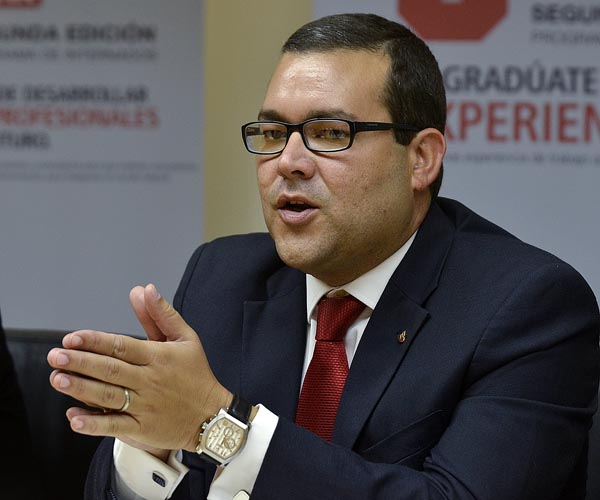75% of region’s youths turn to web when job searching

To understand the opinion of young Latin Americans when it comes to searching for a job, Universia, an international organization offering aid to universities around 23 countries throughout Ibero-America, and Trabajando.com, an association comprising several companies, recently conducted the first Employment Survey of 2014, focusing on “means of recruitment.”
The survey, which polled more than 7,000 users in nine countries in the region, revealed that when it comes to finding a job, 36 percent of respondents said family members or friends were the most effective way of finding an employment, followed by 31 percent of participants who claimed to have discovered their job positions through employment websites on the Internet. Meanwhile, only 6 percent of the respondents managed to discover a job opening through the traditional means — newspaper want ads.
However, while a recommendation was identified as the most effective solution to finding a job, 75 percent of the people who participated in the survey confessed searching through the Internet when embarking on their job hunt, while only a 10 percent made use of their friends as a first option. On the other hand, 5 percent search for help from their University, the survey noted.
José Miguel Justel, general director of Universia Puerto Rico, said, “the results of this survey demonstrate the importance of helping young students in search of their first job experience.”
“From Universia Puerto Rico, we collaborate with the students through our employment website, in which they may upload their resume and receive information about offers in their areas of interest,” he said.
One of the survey questions addressed whether universities are doing a good job in finding opportunities for their students. The majority of participants believed they are, with 33 percent enjoying easy means to discovering internships thanks to alliances established between the school and enterprises. Meanwhile, 30 percent obtained preparation for successfully joining the professional world, while 37 percent believed their college does not offer enough information on the matter.
“We will continue to offer our support to the institutions of higher education, to promote education and the desires of students to progress,” said Rafael Vélez, director of Santander Universidades. “Through some of our successful programs, as is the case of U-Work and our ‘Innovación Empresarial Award,’ we offer opportunities of development to the Puerto Rican students.”
The survey polled visitors of the Trabajando.com and Universia websites. In Ibero-America, some 6,698 took part of the activity, from countries like Argentina, Brazil, Chile, Colombia, Mexico, Peru, Puerto Rico, Spain and Portugal
In Puerto Rico, 395 users participated, split between 33 percent male and 67 percent female. Meanwhile, 41 percent of the participants were graduates, followed by 18 percent of students still enrolled in college.
While it is true that the majority of students said they receive orientations from the University, only 6 percent claim to have uploaded their résumé to their institution’s employment database, yet 34 percent shared it on different job searching websites and only 17 percent on LinkedIn. Finally, 38 percent of the participants claimed to send it directly to the openings that they were interested in.
Forty five percent of the people who took the survey said they update their resume only when searching for a new job, while a 42 percent when they achieve new experiences or studies.













